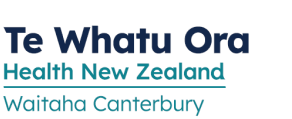What does it do?
Dabigatran is used to treat and help prevent clots in your blood. It reduces your chance of having a stroke and new clots forming in your legs or lungs.
Before you start
- Tell your doctor if you have bleeding or kidney problems, or if you have trouble swallowing, or get heartburn or indigestion.
- Tell your doctor if you are pregnant, planning to become pregnant, or breastfeeding.
How should you take it?
Take dabigatran regularly as directed. You can take it with or without food.
Dabigatran can damage your oesophagus (food pipe). To avoid this, swallow the capsule whole with a large glass of water. Do not crush, chew or open it. Stay upright for at least 30 minutes after taking a dose.
What if you forget a dose?
If you take dabigatran twice a day:
If the next dose is less than six hours away, skip the missed dose and carry on as normal. If there are more than six hours until the next dose, take the missed dose as soon as you remember. Do not take two doses at the same time.
If you take dabigatran once a day:
Skip the missed dose and carry on as normal at the same time the next day. Do not take two doses at the same time.
Can you take other medicines?
Some medicines available without a prescription may react with dabigatran including:
- anti-inflammatories, such as diclofenac (e.g. Voltaren®), ibuprofen (e.g. Nurofen®), or aspirin (e.g. Disprin®, in doses used for pain relief). These can also be found in some cold and flu medicines (e.g. Nurofen Cold and Flu®).
- low-dose aspirin (e.g. Cartia®) - sometimes prescribed with dabigatran, check with your doctor.
Tell your pharmacist or doctor about all medicines or treatments that you may be taking, including vitamins, herbal products (e.g. St John's wort) or recreational drugs.
What side effects might you notice?
| Side Effects | Recommended action |
|---|---|
|
Bleeding you cannot stop, bruises that get bigger, coughing or vomiting blood, vomit that looks like coffee grounds, red or dark brown urine, red or black poo, severe headache (may be signs of bleeding) Trouble swallowing, chest pain, severe indigestion or heartburn |
Tell your doctor immediately |
|
Indigestion, heartburn, stomach upset |
Tell your doctor. Try taking with food. |
If you notice any other effects, discuss them with your doctor or pharmacist.
Other information:
- It is important to tell anyone who gives you medical or dental treatment (e.g. doctor, dentist, pharmacist or podiatrist) that you are taking dabigatran.
- You may bleed or bruise more easily while you are taking dabigatran. Take care or avoid activities that may cause bleeding e.g. tattoos, piercings and contact sports.
- If you have a serious fall or hurt your head, talk to or see a doctor straight away.
This leaflet contains important, but not all, information about this medicine.
Prepared by the MyMedicines Committee at Christchurch Hospital, Te Whatu Ora - Waitaha, New Zealand. August 2025
For more general information about this sheet and its contents, see: What does a My Medicines sheet cover?
Te Reo Māori
Te Reo Māori information sheets supported by Health Quality and Safety Commission New Zealand
Web links for this sheet in different formats
Click on buttons to copy web addresses for this leaflet:
If your browser does not automatically copy these links use its copy command instead.
About My Medicines
My Medicines Patient Information Leaflets (PILs) contain important, but not all, information about the medicines they describe.
For more information about the sheets, see: What does a My Medicines sheet cover?
My Medicines is developed by a team at Te Whatu Ora – Waitaha. Our team is made up of doctors, pharmacists, and a non-medical person to help us keep to plain language. We also discuss our information with specialist health professionals or groups when needed

